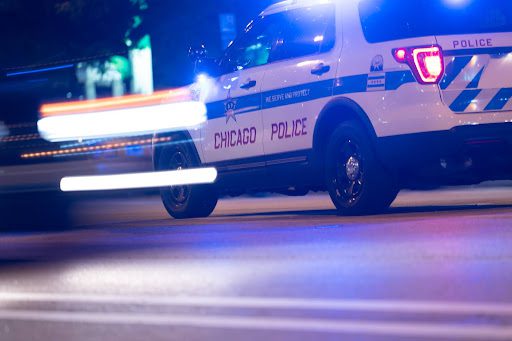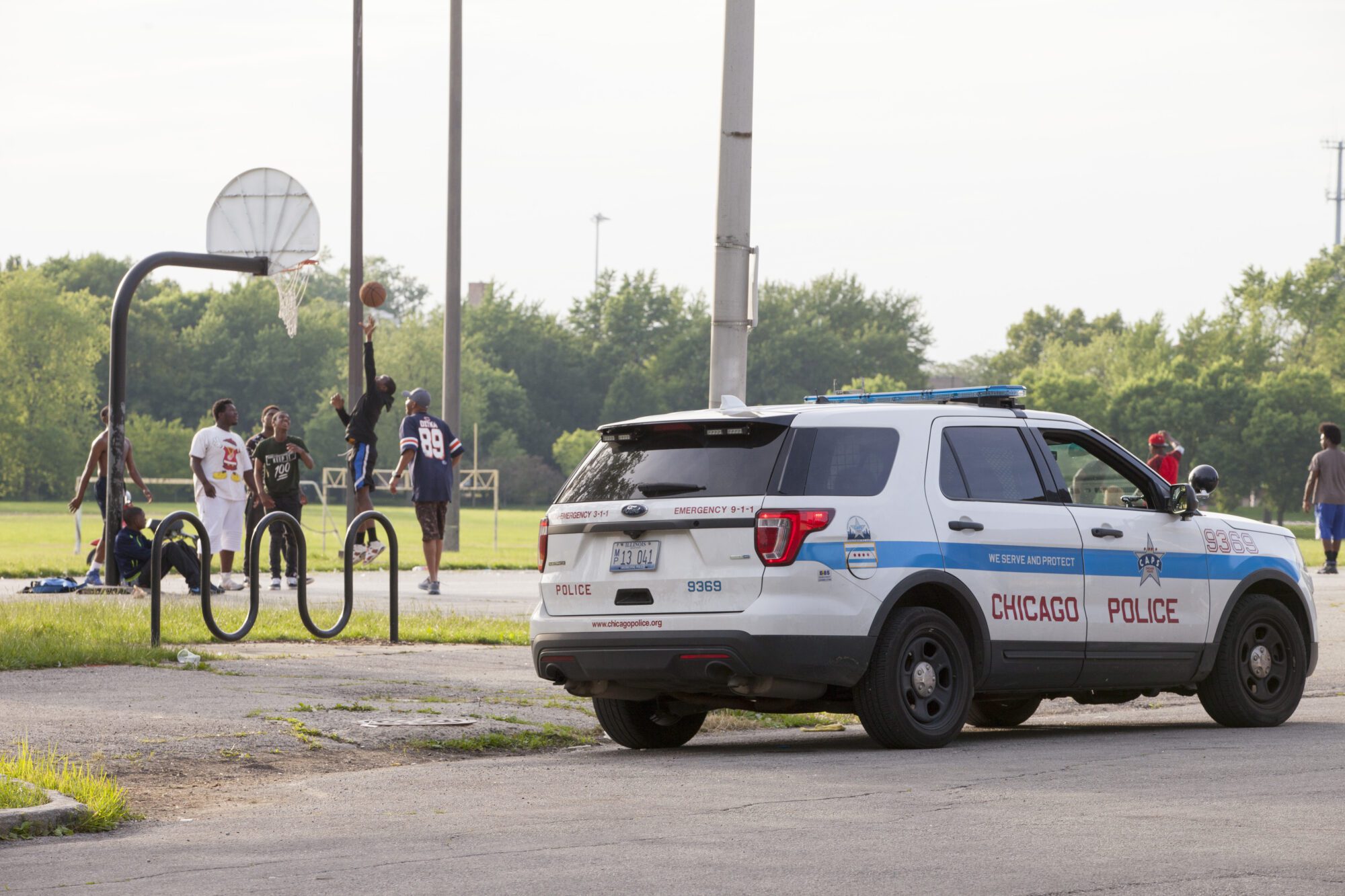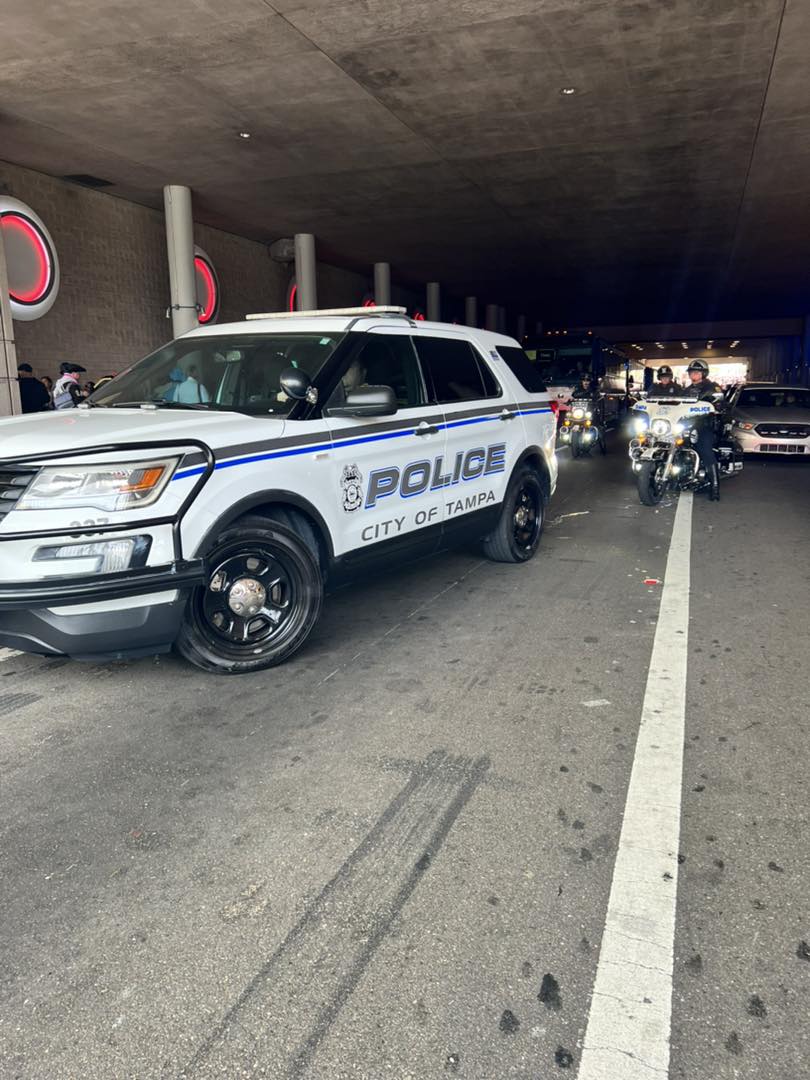“An Impossible Choice”: Virginians Asked to Waive Constitutional Rights to Get a Plea Deal
Governor Glenn Youngkin vetoed a bill that would have barred prosecutors from making defendants waive protections against unreasonable police searches as a condition of pleas.
| May 9, 2024

For Virginians facing criminal convictions with plea deals on the table, the unalienable constitutional rights they typically enjoy suddenly become negotiable. Under state law, prosecutors can ask people to sign away their Fourth Amendment protections against unreasonable search and seizure in exchange for reduced charges or sentencing. Black Virginians are much more likely than their white counterparts to get plea deals that waive these rights, which can open people up to random and invasive police searches long after they’ve resolved their cases.
In the capital city of Richmond, 96 percent of people who agreed to waive their Fourth Amendment rights in 2020 were people of color, data obtained by Bolts show. The city’s population was 45 percent Black and eight percent Hispanic. That same year in Lynchburg, Virginia, the second largest city, Black people accounted for 78 percent of all plea waivers signed, while they only made up 28 percent of the population.
The practice, known as a Fourth Amendment waiver, permits police to search a person, their home, or vehicle for a specified number of years after a conviction, even if they’ve completed their sentence of incarceration or parole, and regardless of proof they committed a crime. People living under the waiver cannot challenge the legality of anything police find during a search. Lengths of the waivers can stretch long beyond probationary periods—prosecutors have ordered some people to waive their Fourth Amendment rights for as long as 20 years, according to data obtained by Virginia advocacy group Justice Forward through public records requests and shared with Bolts.
Prosecutors say the waivers improve public safety. Colette McEachin, the commonwealth attorney for the city of Richmond since 2019, told Bolts the waivers are “very effective” in resolving cases and put people “on notice” once they’re released from incarceration. She also said the waivers prevent people from reacting violently to otherwise unlawful police searches. “They are aware that they’ve given up that right, because they had to sign an agreement that says that. Hopefully there will not be a dangerous situation where they are upset that law enforcement is searching them.”
Defense attorneys, however, say the policy protects police who violate the constitution.
“It encourages bad policing,” Lauren Whitley, chief public defender for the city of Fredericksburg and the counties of Spotsylvania, King George, and Stafford counties, told Bolts. “Fourth Amendment waivers give [police] free rein to do whatever they want. So there’s no consequence for them acting inappropriately or unprofessionally. I think that’s a real problem.”
Across the country, roughly 95 percent of cases in state courts are resolved through plea bargains. Prosecutors in some Virginia counties make the waiver a mandatory condition of a plea bargain, and people who choose not to accept them face the threat of a longer sentence after a trial.
That presents defendants with an “impossible choice,” Whitley says. “Your choice is either to go to trial or to accept the plea deal with the Fourth waiver.” She said the waivers are a standard condition of most plea deals in the localities where she works.
Prosecutors can ask people to waive protections such as the right to a jury trial, the right to see evidence against them, or the right to erase their record later as a condition of a plea deal. Fourth Amendment waivers also happen across the U.S., in states including California, Georgia, and Idaho.
Virginia was slated to abolish the practice earlier this year, when legislators passed a bill along party lines that would have prohibited plea deals and court orders that “waive, release, or extinguish” defendants’ Fourth Amendment rights. State Senator Saddam Azlan Salim, a Democrat who has backed criminal justice reform legislation in the past, was the sponsor.
Supporters of the legislation cited concerns about prosecutors disproportionately leveraging the waivers against people of color. Governor Glenn Youngkin, however, killed the legislation in March, vetoing it along with 21 other criminal justice-related bills, stating they “undermine public safety.” (His office did not return a request for comment from Bolts on why he specifically vetoed the Fourth Amendment waiver bill.)
Aaron Boone, the chief public defender in Lynchburg, says Fourth Amendment protections shouldn’t be up for discussion. “I think the specter of somebody losing a right, particularly a right of that kind of importance, should quite frankly, just be taken off the table. When your rights become negotiable they become cheap. I mean that’s the bottom line.”
Defense attorneys also worry that Fourth Amendment waivers exacerbate racial disparities in policing. Richmond police have already been found to stop Black people at a rate of five times higher than white people. Between July 2020 and December 2020, 77 percent of drivers stopped by Richmond police were Black while just 15 percent were white, according to a federal lawsuit alleging that city police discriminated against Black people.
Typically, police must have a reasonable suspicion that someone committed a crime to stop and search them. But once a person signs away their Fourth Amendment rights, police are allowed to stop them at random. There’s no way to track the full scope of how often police stop people with Fourth Amendment waivers because the searches typically aren’t logged unless police find something.
While Virginians on supervised release already agree to allow probation officers to randomly search their homes and vehicles, the Fourth Amendment waivers take these searches to the extreme; the search privileges outlined under the waivers go beyond what probation officers may search.
“You can be walking down the street, and a uniformed law enforcement officer can stop you, recognize you, and know that you have a waiver and then proceed to just search you without any cause,” said Rob Poggenklass, executive director of Justice Forward Virginia.
Police also stop people without knowing they have a waiver. For example, officers who find something during a search can go back to their database and see whether that person signed away their rights. If they have, police can then use the evidence they found during the search in court even if they didn’t have probable cause to stop the person in the first place.
Ashley Shapiro, a public defender in Richmond who says her clients are often made to choose between accepting a waiver or a tougher sentence, argues that the waivers have provided a shield for police to illegally stop people. “Usually it’s that they stop people on the street for no reason and then get lucky that they happen to have a Fourth Amendment waiver,” she said.
The waivers are often wide-reaching. A copy of a Richmond plea agreement including a waiver states a person waiving their rights “shall submit to search and seizure of his person, property, place of residence, vehicle and personal effects, at any time of day or night by any law enforcement officer with or without a search warrant, warrant of arrest or reasonable cause for a period of 3 years from the date of his release from active incarceration.”
As the founder of Nolef Turns, a Richmond advocacy group for people entangled in the criminal justice system, Sheba Williams hosts workshops teaching attendees about how to stand up for their rights. But it’s not uncommon for Williams to hear from people who already waived their ability to assert their Fourth Amendment rights. The decision to forfeit, she said, is often made under duress.
“Most people who are like, ‘Okay, well, I’m going to sign this agreement and I want to be free earlier or get sentenced to probation,’ aren’t thinking about how long this can actually go on,” said Williams. “So a person will say, ‘Well, look, I just want to be free. I just want it to be three years versus 30.’ And a lot of people are signing this right away.”
McEachin, the Richmond commonwealth attorney, said she looks at the facts of each case before deciding whether to ask for a waiver as part of a plea deal. In drug and gun cases, she said, asking a person to give up their Fourth Amendment protections is particularly important. “Those are the individuals who we want to be able to search in the future, if you’ve developed information that they have resumed criminal behavior,” she said.
When asked about the data showing that roughly 96 out of every 100 people with waivers in Richmond are people of color, McEachin insisted her office’s use of them is not racially discriminatory.
“I think that probably most of the people who have been charged are African American, or brown or Latino,” she conceded, but continued, “I think that everybody who’s an adult always has difficult choices, and this probably is a difficult choice. But it is a difficult choice that that person has arrived at through their own actions.”
Use of the waivers often comes down to the discretion of individual prosecutors, and it varies across Virginia. Vikram Kapil, the head public defender for the southern counties of Halifax, Mecklenburg, and Lunenburg, said that only prosecutors in Lunenburg County try to include them in plea deals, especially for drug offenses. “We’re pushing back on it,” he said. “We generally say, ‘No, you shouldn’t do this.’ It’s tough telling someone who’s sitting in jail who isn’t able to go see their family and see their loved ones.”
In Lynchburg, prosecutors previously used the threat of harsher sentences typically handed down by juries to convince people to take plea deals with the waivers. But after the passage of sentencing reforms in 2020 that provided protections against unfair sentences, prosecutors no longer had this tool to force the deals.
“A lot of their leverage disappeared,” said Boone. “Also we made a concerted effort as a public defender’s office here to highly discourage people from taking these kinds of plea offers that include these things.” There’s no publicly available updated data on the application of the waivers but Boone said they are now used sparingly.
Parisa Dehghani-Tafti, the commonwealth attorney for Arlington County, doesn’t use the waivers at all. Dehghani-Tafti, a former public defender who won on a reform platform, said their use makes it harder for people to successfully re-enter society. “We shouldn’t be trying to make it easy to convict them again, we should be instead trying to give them the support and the tools that they need to not get in trouble again,” she told Bolts.
There was little opposition to the bill to abolish the waivers. The powerful Virginia Association of Commonwealth’s Attorneys was the only organization to come out against the legislation. “Fourth amendment waivers are a tool prosecutors may use for a few reasons, including for the benefit of the defendant and public safety,” Amanda Howie, administrator of the association, wrote in an email to Bolts. (Prosecutors in leadership of the organization did not respond to requests for comment).
While the governor’s veto allows prosecutors across the state to continue imposing the waivers, the Virginia Court of Appeals limited their reach last month, ruling that they do not extend to body cavity searches. The appeal centered on Lynchburg police attempting to reach inside a man’s buttocks on the side of the road following a 2020 traffic stop. The officers said they smelled marijuana and searched him because he had a waiver.
The court reversed the conviction that resulted from the search, finding that even though the man consented to waive his rights against illegal searches, “consent to warrantless searches of a person in general, even when provided pursuant to plea agreement, does not include consent to intrusive searches of private areas in or on the body.”
Sign up and stay up-to-date
Support us
Bolts is a non-profit newsroom that relies on donations, and it takes resources to produce this work. If you appreciate our value, become a monthly donor or make a contribution.




